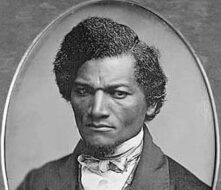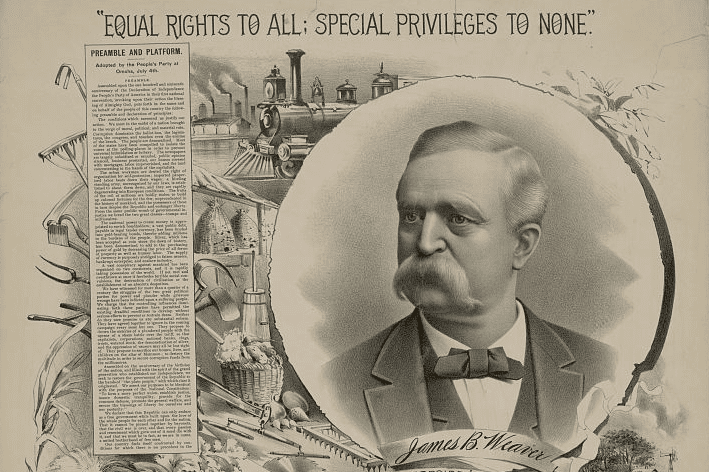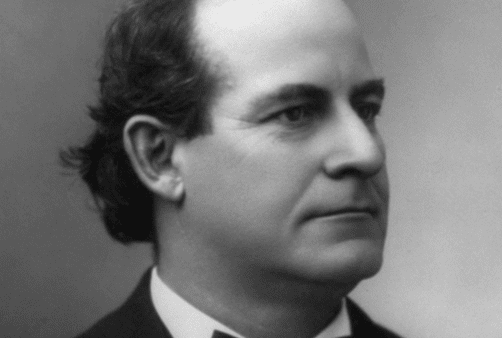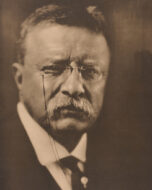Few, if any, occasions within the past thirty years have meant more to the Negro race than that which calls us here. The Negro has been a laborer in this country nearly three hundred years, but with few exceptions he has been a forced laborer, an unskilled laborer, or an ignorant laborer; but here at the mouth of the James, but a few miles distant from where we entered this country as slaves, we have inaugurated today the largest and most complete attempt in this country to make the Negro an intelligent, conscientious, skillful producer, and to have him appreciate the dignity, beauty, and civilizing power that there is in labor. For this magnificent opportunity, not only the Hampton Institute but the Negro race bows in thanks to Mr. Morris K. Jesup, the generous helper, who has made what we see here possible; Dr. J.L.M. Curry, the farseeing agent of the John F. Slater Fund; as well as all the trustees and generous friends who have united in the opening of this new door. Coming as it does on the heels of the decision of the great American Jury, that our own country is to go forward and not backward in its business and commercial life, this enterprise means much, not alone to the Negro, but to the entire nation. Within the two decades it will be decided whether the Negro, by discarding ante-bellum ideas and methods, by putting brains and skill into the common occupations that lie at his door, will be able to lift labor our of toil, drudger, and degradation into that which is dignified, beautiful, and glorified. Further, it will be decided within this time whether the Negro is to be replaced, crushed out as a helpful industrial factor by the fastspreading trades unions, in connection with thousands of foreign skilled laborers, that even now press hard and fast upon his heels and seem to press him into the very death, This question is for such unselfish members of the Anglo-Saxon race as are gathered here to help decide — and in deciding, not alone for the Negro, but whether you will have eight million people in this country, a nation within a nation, that will be a burden, a menace to your civilization and commercial life.
The Negro in slavery was tied to the white man through the bill of sale. In freedom he must tie himself to the white man through the bonds of commerce and the cultivation of the sympathetic good will of his white neighbor. When a black man has the best farm to be found in his county, every white man will respect him. A white man knows the Negro that lives in a two-story brick house whether he wants to or not. When a black man is the largest tax payer in a community, his neighbors will not object very long to his voting and having his vote honestly counted. In the future there must be a more vital and practical connection between the Negro’s educated brain and his means of earning a living.
But what has all this to do with the higher interests — the moral and religious side? I answer: Show me a race that is living on the outer edges of the industrial world, on the skimmed milk of business, and I will show you a race that is the football for political parties, and a race that cannot be what it should be in morals, and religion. I may be accused of wrong interpretation, but when the Bible says, —Work out your salvation with fear and trembling,— I am tempted to believe that it means what it says. In the past we have had the fear and trembling. As a race I believe we are to work out our salvation, work it out with pen and ink, work it out with rule and compass, work it out with horsepower and steam power, work it out on the farm, in the shop, schoolroom, sewing room, the office, and in all life’s callings. Here on these consecrated grounds I believe that we have a movement today that means the salvation of the Negro race, and as my people are taught in these classrooms, in these shops, on this farm from year to year to mix up with their religion zeal and habits of thrift, economy, carpentry, and blacksmithing with farming and sewing, with printing and house-building, and then as this influence penetrates the hills and valleys, the rice swamps, the Virginia tobacco fields, the Louisiana sugar bottoms, every hamlet and city, we shall agree that it is most possible for a race as for an individual to actually work out its salvation.
In attempting to elevate a race that has been in the position of the Negro race, nothing is so hard to avoid as extremes. It is not always easy to make a race, as well as its friends, see that on growth and development must we hang the line of certain well-defined and natural laws; that when there is artificial forcing, we have the superficial and deceptive signs of progress, but the real and permanent growth is wanting. The past history and present environment of the Negro lead him too often to imitate the white man at certain superficial points without stopping to count the steps, the years that it has taken the white man to reach his present position, or to note the foundations upon which his progress rests. Here at Hampton we have not alone the signs of progress but the reality, There is no position, however high, in science, or letters, or politics, that I would withhold from any race, but I would have the foundation sure.





































































































